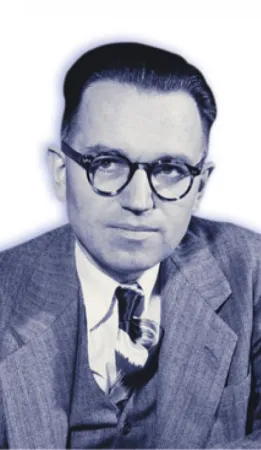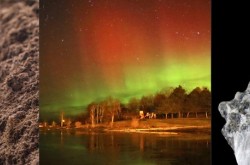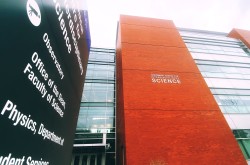Gerhard Herzberg, uncovering the mysteries of science
This article was originally written and submitted as part of a Canada 150 Project, the Innovation Storybook, to crowdsource stories of Canadian innovation with partners across Canada. The content has since been migrated to Ingenium’s Channel, a digital hub featuring curated content related to science, technology and innovation.
Ilana Reimer
Algonquin College Journalism Program
At 12 years old, Gerhard Herzberg made a homemade telescope with one of his friends. The two boys ground glass lenses to fit into handmade mounts in a metal tube. When the sky was clear, they would take the streetcar to a park in Hamburg, Germany, and look at the planets through their home-made telescope.
This was just the beginning of Herzberg’s long, brilliant career. For him, science was a mystery that he wanted to solve. In 1933 Herzberg was teaching at the University of Darmstadt when the Nazis created a law forbidding men with Jewish wives from teaching at universities. Herzberg’s wife was Jewish, so he decided to leave Germany. He had previously worked with a visiting Canadian physical chemist named John Spinks, and Spinks helped Herzberg obtain a job at the University of Saskatchewan. Herzberg lived in Saskatoon for 10 years, teaching physics and writing his book, Molecular Spectra.
He became director of Canada’s National Research Council in Ottawa in 1949. It was during this time that he began making ground-breaking discoveries in molecular spectroscopy, the study of how atoms and molecules emit or absorb light. Herzberg analyzed spectrograms, a kind of photograph that shows the process of molecules absorbing and emitting light. This allowed him to determine the energy levels and probable locations of electrons in a molecule – information that would help scientists find fresh ways to mix chemicals and produce new substances.
But although Herzberg made many innovative contributions to the world of atomic and molecular spectroscopy, he argued that people should not pursue science for the sake of its “usefulness.” He maintained that scientists should seek to uncover the mysteries of nature, simply for the sake of advancing human understanding.
In 1971 Herzberg won the Nobel Prize in chemistry. He continued to work for Canada’s National Research Council until his death in 1999. He was inducted into the Canadian Science and Engineering Hall of Fame in 1992.
















